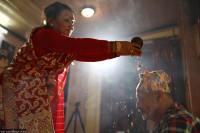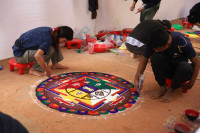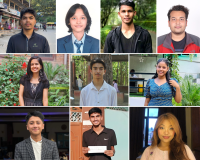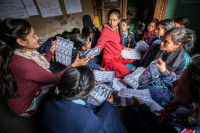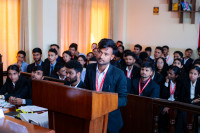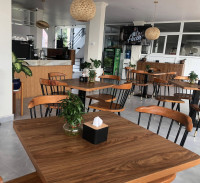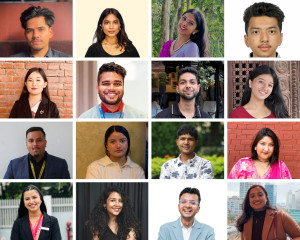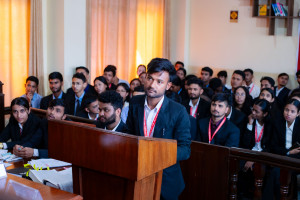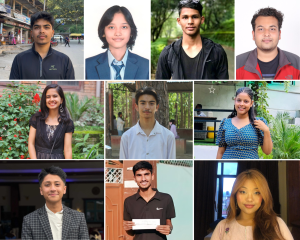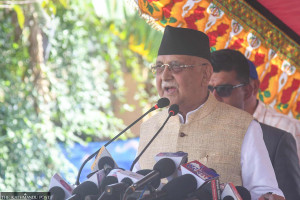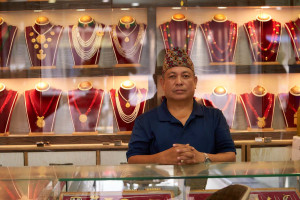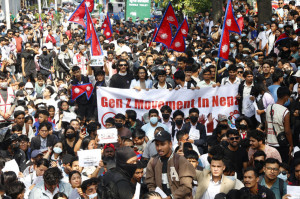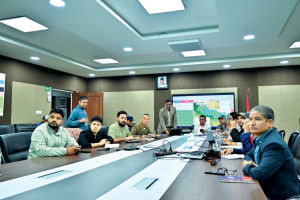Culture & Lifestyle
‘For the sheer joy of playing’
Nineteen-year-old Preeti Kulung Rai talks of her journey into the national team and ‘that’ winning goal against Lebanon in the semi-final of the WAFF Women’s Championship.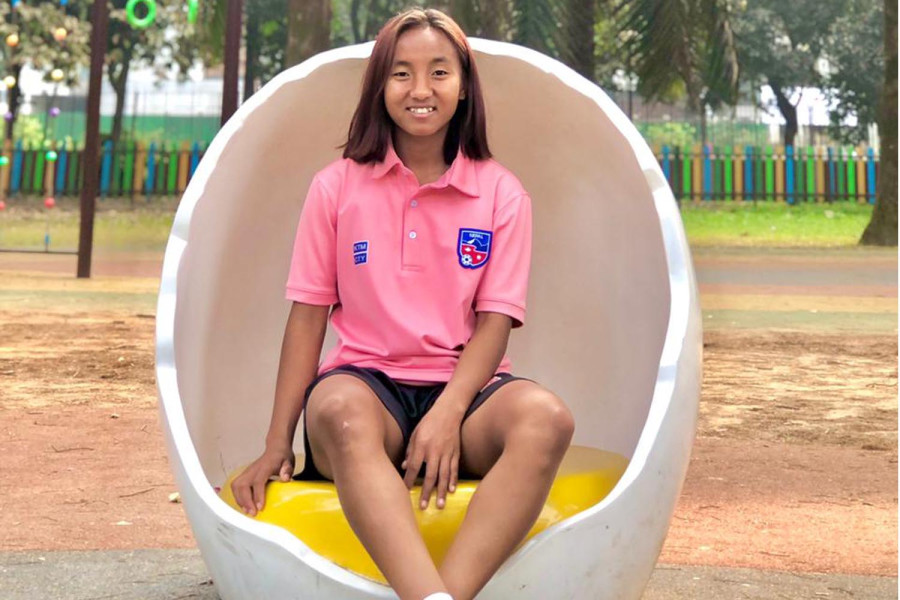
Aarati Ray
Preeti Kulung Rai, nineteen-year-old midfielder for Nepal’s national football team, caught everyone’s attention on social media during the West Asian Football Federation (WAFF) Women’s Championship in February and all for good reasons.
Rai’s winning goal in a close game against Lebanon in the semi-final not only secured Nepal’s spot in the final but also captured widespread attention online, leading many to compare her with international football icons.
Interestingly, Rai didn’t even know that Nepal had a women’s national football team while she was growing up. For her, it was also about realising that girls can love and excel in football too, not just boys.
Growing up with four brothers, Rai enjoyed outdoor activities like running, basketball, tennis and especially football. From the age of six, she would go to the nearby ground from her house in Kapan, Kathmandu to play football.
Despite her love for the game, Rai often encountered discouragement from boys who would tell her that “girls don’t play” or refuse to play with her. Some even treated her poorly, resorting to name-calling. Nevertheless, her passion for football never wavered.
Constantly hearing that girls shouldn’t play, Rai subconsciously believed that girls couldn’t pursue football. “Despite my love for the sport, the idea of girls playing football professionally never crossed my mind,” she confessed.
When Rai was just ten years old, something clicked for her. A big moment came when an older boy on the playground hinted that she had so much passion for the game that she could make it to the national team one day. This contradicted what she had always been told, that girls couldn’t play football. Surprised and doubtful, she asked herself and the boy, “Can girls play too?”
Discovering the presence of a women’s national team and talented women footballers, Rai found her purpose and began training hard, determined to join the national team one day.
Following that, she began taking part in school tournaments. At 11 years old, she learned about the training offered by the Nepal Youth Programme Club and started attending sessions six days a week until she turned 15.
Subsequently, she took part in the Coca-Cola Inter Football Competition (school level) and became aware of the U15 (Under-15) selection process, where she successfully secured a spot on the team.
Rai served as the captain of Nepal during the South Asian Football Federation (SAFF) U15 Women’s Championship and even captained the U18 and U20 national teams. In the 2019 SAFF Women’s Championship and the 13th South Asian Games, she was shortlisted in the training camp but didn’t make the final squad.
Finally, at 16, Rai debuted for the national team during a friendly match at Dasharath Stadium against Bangladesh in 2021. Not only did she debut, but she also scored the team’s opening goal, earning herself the title of Player of the Match.
“Before I joined the team, I thought once I got in, that would be the biggest achievement but I was wrong,” she says, realising that merely making it to the team isn’t enough. Instead, the true challenge lay in being able to consistently perform and maintaining a high level of athleticism.
Despite suffering a torn meniscus during Nepal’s loss in the final game of the WAFF in February, Rai sees the tournament as a turning point in her career. She describes her winning goal in WAFF as surreal, “Crowd was cheering but I felt like time froze. I was happy that our teamwork made it to the finals,”
When Rai was captain of the U19 and U20 teams, she had to keep everyone pumped up and be their rock. However, in the national team, with senior players, she got to be guided and support a leader, rather than always being the leader. “This taught me to be more grounded and learn from my seniors,” she says.
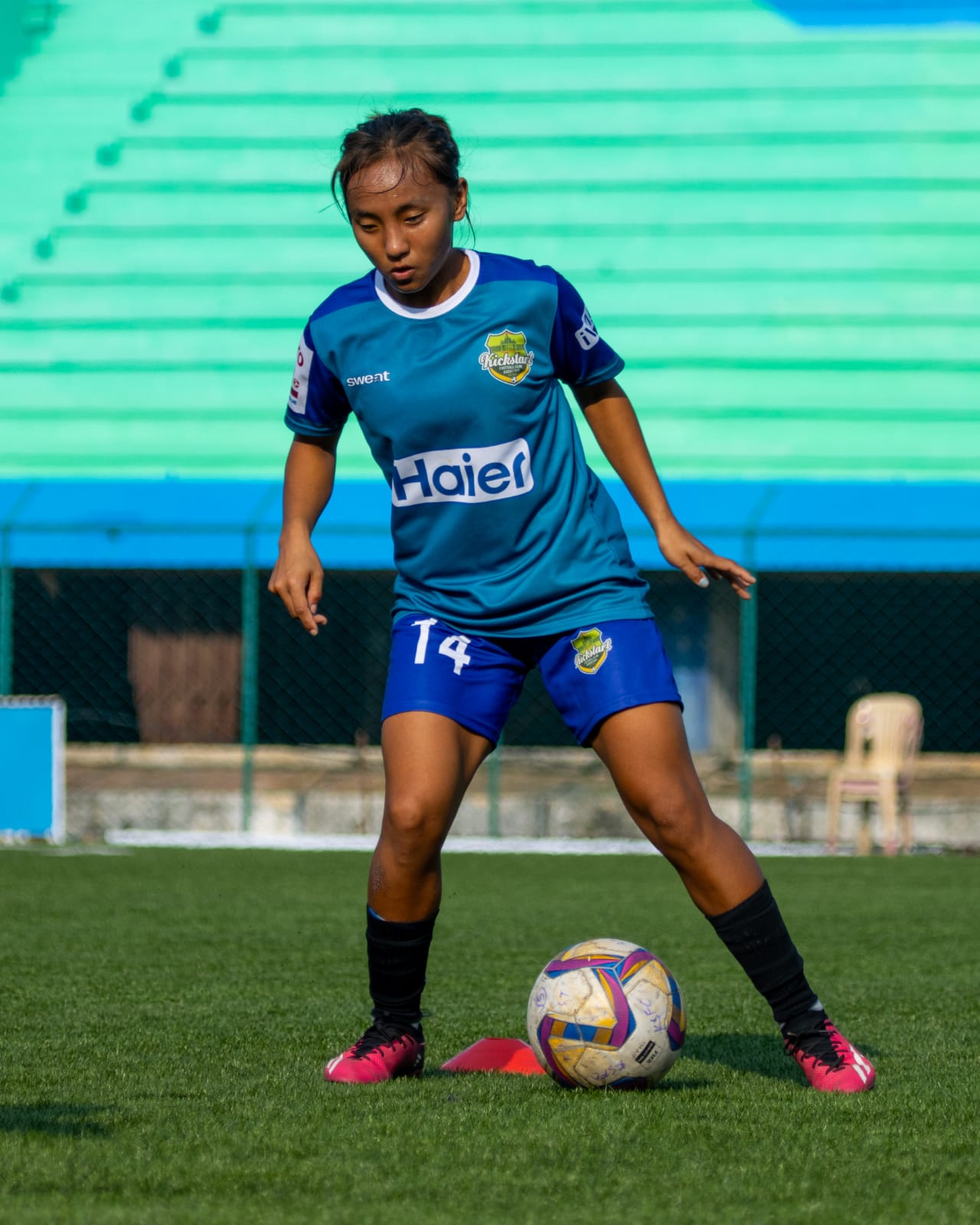
Rai had caught the eye of Kickstart Football Club in India, where she played in the Indian Women’s League in 2023. Unfortunately, the injury sustained during the WAFF finals, caused her to miss the rest of the season. While the timing of the injury saddens her, she understands the importance of facing setbacks and starting anew.
A crucial takeaway for Rai from the WAFF experience, according to her is, “I learned to cultivate mental strength and handle adversity calmly on the field which is quite essential for any athlete.”
Rai’s primary goal for the future is to become her best self, both mentally and physically on personal and professional levels. She is also determined to win the SAFF championship and dreams of seeing the Nepali team reach the World Cup and bring home the trophy someday. “For that, we need all the support we can get,” she adds.
Reflecting on her pre-U15 days, Rai recalls encountering talented players whom she believed would excel in the national team. However, unlike her, they couldn’t join because of a lack of family support, financial hardships and training opportunities. So she stresses the necessity of enhancing support systems for female athletes, particularly in rural and marginalised communities.
She also highlights the critical role of family support, “In lack of family support, many dreams and hopes can be shattered at an early age even before it fully blooms”. Rai also acknowledges the financial hurdles prevalent in pursuing professional football in Nepal. While it may suffice for personal expenses, she finds it inadequate for supporting one’s family.
Due to gender discrimination, societal biases against female athletes, financial constraints and limited support for women’s sports, Rai’s journey to this day has been challenging. However, being part of the national team has taught her the importance of persistence.
“I understand that overcoming life’s challenges off the field is crucial for success on the field,” she says.
Rai encourages aspiring individuals, particularly young girls, not to abandon their dreams. She stresses the importance of having more stories, players and hope in the Nepali sports scenario.
Currently, in a recovery phase post-injury, Rai recognises that she’s just at the beginning of her journey and expects more challenges ahead. While achievements and awards are significant, she values the free and pure joy of playing the most. “I’m uncertain about what lies ahead,” she shares, “but I hope I never lose the genuine and innocent joy of playing football, akin to my childhood. That’s something I want to feel forever. I wish to keep playing as long as I can.”




 17.12°C Kathmandu
17.12°C Kathmandu
